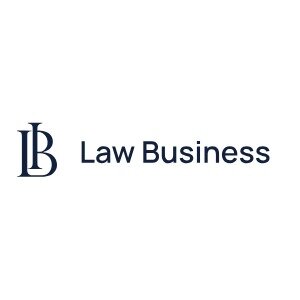Best Energy Regulatory Law Lawyers in Kyrgyzstan
Share your needs with us, get contacted by law firms.
Free. Takes 2 min.
Or refine your search by selecting a city:
List of the best lawyers in Kyrgyzstan
About Energy Regulatory Law in Kyrgyzstan
Energy Regulatory Law in Kyrgyzstan refers to the system of legal rules, frameworks, and institutions that govern the production, distribution, and consumption of energy resources within the country. This branch of law aims to ensure a balance between reliable energy supply, environmental protection, consumer rights, and the economic interests of the government and private sectors. Key sources of energy in Kyrgyzstan include hydropower, oil, and natural gas. The sector is regulated by laws passed by the country's Parliament, decrees of the Cabinet of Ministers, as well as technical codes and standards set by relevant ministries and regulatory agencies.
Why You May Need a Lawyer
Navigating the complexities of Energy Regulatory Law in Kyrgyzstan can be challenging due to frequent regulatory updates, overlapping jurisdictions, and the country’s evolving approach to energy sector reforms. Common situations where individuals or businesses may require legal help include:
- Acquiring licenses or permits for energy production, import or export
- Negotiating and drafting energy-related contracts, including Power Purchase Agreements (PPA)
- Compliance with environmental and technical regulations
- Resolving disputes between energy providers and consumers
- Foreign investment in energy projects
- Public-private partnership (PPP) projects in energy infrastructure
- Changes in electricity tariffs or other regulatory decisions
- Handling administrative penalties or challenging enforcement actions
Legal experts can provide guidance to ensure your project or business is compliant with all relevant regulations, help protect your legal interests, and represent you in negotiations or disputes.
Local Laws Overview
The main laws governing the energy sector in Kyrgyzstan are:
- Law on Energy (1996): Sets the general legal framework for energy activities, including production, transmission, distribution, and consumption.
- Law on Renewable Energy Sources (2008): Regulates the use and support of renewable energy sources, setting incentives for investment in these sectors.
- Law on Electric Power Industry (1997): Focuses on the electricity market, licensing, tariff setting, and the rights and obligations of energy companies and users.
- Law on State Regulation of Fuel and Energy Sector (2012): Details the government’s oversight, including the powers of regulatory agencies and their procedures.
Key regulatory bodies include the State Agency for Regulation of the Fuel and Energy Complex, the Ministry of Energy, and the Antimonopoly Agency. These organizations issue licenses, monitor compliance, and set tariff rates. Additional aspects to be aware of:
- Environmental regulations affect energy projects, requiring impact assessments and permits.
- Import and export of energy resources is controlled and may require separate approvals.
- Foreign investment in the energy sector is usually permitted but subject to government approval and specific rules.
Frequently Asked Questions
What types of energy projects require government licensing?
Licenses are required for electricity generation, transmission, distribution, and for the extraction and processing of oil and gas. Renewable energy projects, particularly large-scale installations, also need government approval and licensing.
Can foreign companies invest in the Kyrgyz energy sector?
Yes, foreign companies can invest in the Kyrgyz energy sector, but they must comply with national laws, obtain necessary permits, and in some cases, seek government or agency approval for strategic projects.
What incentives exist for renewable energy development?
Kyrgyzstan provides incentives such as reduced customs duties, preferential tariffs, and guaranteed grid access for certain renewable energy projects, especially in hydropower, wind, and solar energy.
How are electricity tariffs set?
Tariffs for electricity and other energy resources are determined by government agencies based on production costs, infrastructure investments, and social policy considerations. These rates are reviewed periodically.
How can energy disputes be resolved?
Disputes can be resolved through negotiation, mediation, administrative hearings with the regulator, or litigation in Kyrgyz courts. Some contracts may also allow for international arbitration.
Are environmental impact assessments mandatory for all energy projects?
Most large energy infrastructure projects are required to complete environmental impact assessments and obtain environmental permits as a condition for regulatory approval.
What are the penalties for non-compliance with energy regulations?
Penalties may include fines, suspension or revocation of licenses, restitution of damaged resources, and in severe cases, criminal liability for responsible individuals or companies.
Can individuals or companies appeal regulatory decisions?
Yes, individuals and companies have the right to appeal decisions by the State Agency for Regulation of the Fuel and Energy Complex and other relevant regulatory bodies in court.
What should be included in an energy sale contract?
Contracts typically include terms on supply volumes, price, duration, delivery points, dispute resolution mechanisms, payment terms, and force majeure clauses.
Is public consultation required for new energy projects?
For certain large-scale projects, especially those with potential environmental or social impacts, public consultation procedures are required under national law as part of the permitting process.
Additional Resources
If you are seeking more information or specific guidance on Energy Regulatory Law in Kyrgyzstan, the following resources and organizations can be helpful:
- State Agency for Regulation of the Fuel and Energy Complex of the Kyrgyz Republic - responsible for sector oversight and licensing
- Ministry of Energy of the Kyrgyz Republic - develops and implements national energy policy
- Antimonopoly Agency of Kyrgyzstan - monitors competition and fair practices in the energy market
- Kyrgyzstan Bar Association - provides a listing of legal professionals experienced in energy and infrastructure law
- Chambers of Commerce and Industry - offers support and information for investors in the energy sector
Next Steps
If you require legal assistance regarding Energy Regulatory Law in Kyrgyzstan, consider the following steps:
- Identify the specific issue or area where you need assistance, such as licensing, investment, disputes, or contract review.
- Gather all relevant documentation, including contracts, permits, regulatory correspondence, and project details.
- Contact a qualified energy law specialist or legal firm with experience in Kyrgyzstan’s energy sector.
- Consult with the lawyer to assess your situation and develop an action plan tailored to your needs.
- Maintain ongoing communication with legal counsel and regulatory bodies to ensure compliance and timely resolution of any issues.
Acting early and seeking professional legal advice increases your likelihood of a successful outcome and can help avoid costly misunderstandings or delays in your energy project or business operations.
Lawzana helps you find the best lawyers and law firms in Kyrgyzstan through a curated and pre-screened list of qualified legal professionals. Our platform offers rankings and detailed profiles of attorneys and law firms, allowing you to compare based on practice areas, including Energy Regulatory Law, experience, and client feedback.
Each profile includes a description of the firm's areas of practice, client reviews, team members and partners, year of establishment, spoken languages, office locations, contact information, social media presence, and any published articles or resources. Most firms on our platform speak English and are experienced in both local and international legal matters.
Get a quote from top-rated law firms in Kyrgyzstan — quickly, securely, and without unnecessary hassle.
Disclaimer:
The information provided on this page is for general informational purposes only and does not constitute legal advice. While we strive to ensure the accuracy and relevance of the content, legal information may change over time, and interpretations of the law can vary. You should always consult with a qualified legal professional for advice specific to your situation.
We disclaim all liability for actions taken or not taken based on the content of this page. If you believe any information is incorrect or outdated, please contact us, and we will review and update it where appropriate.
Browse energy regulatory law law firms by city in Kyrgyzstan
Refine your search by selecting a city.











